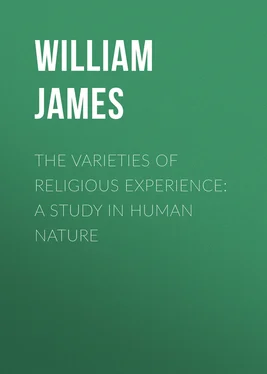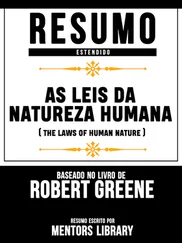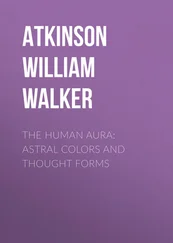William James - The Varieties of Religious Experience - A Study in Human Nature
Здесь есть возможность читать онлайн «William James - The Varieties of Religious Experience - A Study in Human Nature» — ознакомительный отрывок электронной книги совершенно бесплатно, а после прочтения отрывка купить полную версию. В некоторых случаях можно слушать аудио, скачать через торрент в формате fb2 и присутствует краткое содержание. Жанр: foreign_prose, foreign_religion, Философия, foreign_psychology, foreign_antique, на английском языке. Описание произведения, (предисловие) а так же отзывы посетителей доступны на портале библиотеки ЛибКат.
- Название:The Varieties of Religious Experience: A Study in Human Nature
- Автор:
- Жанр:
- Год:неизвестен
- ISBN:нет данных
- Рейтинг книги:4 / 5. Голосов: 1
-
Избранное:Добавить в избранное
- Отзывы:
-
Ваша оценка:
- 80
- 1
- 2
- 3
- 4
- 5
The Varieties of Religious Experience: A Study in Human Nature: краткое содержание, описание и аннотация
Предлагаем к чтению аннотацию, описание, краткое содержание или предисловие (зависит от того, что написал сам автор книги «The Varieties of Religious Experience: A Study in Human Nature»). Если вы не нашли необходимую информацию о книге — напишите в комментариях, мы постараемся отыскать её.
The Varieties of Religious Experience: A Study in Human Nature — читать онлайн ознакомительный отрывок
Ниже представлен текст книги, разбитый по страницам. Система сохранения места последней прочитанной страницы, позволяет с удобством читать онлайн бесплатно книгу «The Varieties of Religious Experience: A Study in Human Nature», без необходимости каждый раз заново искать на чём Вы остановились. Поставьте закладку, и сможете в любой момент перейти на страницу, на которой закончили чтение.
Интервал:
Закладка:
What single-handed man was ever on the whole as successful as Luther? yet when he had grown old, he looked back on his life as if it were an absolute failure.
“I am utterly weary of life. I pray the Lord will come forthwith and carry me hence. Let him come, above all, with his last Judgment: I will stretch out my neck, the thunder will burst forth, and I shall be at rest.”—And having a necklace of white agates in his hand at the time he added: “O God, grant that it may come without delay. I would readily eat up this necklace to-day, for the Judgment to come to-morrow.”—The Electress Dowager, one day when Luther was dining with her, said to him: “Doctor, I wish you may live forty years to come.” “Madam,” replied he, “rather than live forty years more, I would give up my chance of Paradise.”
Failure, then, failure! so the world stamps us at every turn. We strew it with our blunders, our misdeeds, our lost opportunities, with all the memorials of our inadequacy to our vocation. And with what a damning emphasis does it then blot us out! No easy fine, no mere apology or formal expiation, will satisfy the world's demands, but every pound of flesh exacted is soaked with all its blood. The subtlest forms of suffering known to man are connected with the poisonous humiliations incidental to these results.
And they are pivotal human experiences. A process so ubiquitous and everlasting is evidently an integral part of life. “There is indeed one element in human destiny,” Robert Louis Stevenson writes, “that not blindness itself can controvert. Whatever else we are intended to do, we are not intended to succeed; failure is the fate allotted.” 71And our nature being thus rooted in failure, is it any wonder that theologians should have held it to be essential, and thought that only through the personal experience of humiliation which it engenders the deeper sense of life's significance is reached? 72
But this is only the first stage of the world-sickness. Make the human being's sensitiveness a little greater, carry him a little farther over the misery-threshold, and the good quality of the successful moments themselves when they occur is spoiled and vitiated. All natural goods perish. Riches take wings; fame is a breath; love is a cheat; youth and health and pleasure vanish. Can things whose end is always dust and disappointment be the real goods which our souls require? Back of everything is the great spectre of universal death, the all-encompassing blackness:—
“What profit hath a man of all his labour which he taketh under the Sun? I looked on all the works that my hands had wrought, and behold, all was vanity and vexation of spirit. For that which befalleth the sons of men befalleth beasts; as the one dieth, so dieth the other; all are of the dust, and all turn to dust again.... The dead know not anything, neither have they any more a reward; for the memory of them is forgotten. Also their love and their hatred and their envy is now perished; neither have they any more a portion for ever in anything that is done under the Sun.... Truly the light is sweet, and a pleasant thing it is for the eyes to behold the Sun: but if a man live many years and rejoice in them all, yet let him remember the days of darkness; for they shall be many.”
In short, life and its negation are beaten up inextricably together. But if the life be good, the negation of it must be bad. Yet the two are equally essential facts of existence; and all natural happiness thus seems infected with a contradiction. The breath of the sepulchre surrounds it.
To a mind attentive to this state of things and rightly subject to the joy-destroying chill which such a contemplation engenders, the only relief that healthy-mindedness can give is by saying: “Stuff and nonsense, get out into the open air!” or “Cheer up, old fellow, you'll be all right erelong, if you will only drop your morbidness!” But in all seriousness, can such bald animal talk as that be treated as a rational answer? To ascribe religious value to mere happy-go-lucky contentment with one's brief chance at natural good is but the very consecration of forgetfulness and superficiality. Our troubles lie indeed too deep for that cure. The fact that we can die, that we can be ill at all, is what perplexes us; the fact that we now for a moment live and are well is irrelevant to that perplexity. We need a life not correlated with death, a health not liable to illness, a kind of good that will not perish, a good in fact that flies beyond the Goods of nature.
It all depends on how sensitive the soul may become to discords. “The trouble with me is that I believe too much in common happiness and goodness,” said a friend of mine whose consciousness was of this sort, “and nothing can console me for their transiency. I am appalled and disconcerted at its being possible.” And so with most of us: a little cooling down of animal excitability and instinct, a little loss of animal toughness, a little irritable weakness and descent of the pain-threshold, will bring the worm at the core of all our usual springs of delight into full view, and turn us into melancholy metaphysicians. The pride of life and glory of the world will shrivel. It is after all but the standing quarrel of hot youth and hoary eld. Old age has the last word: the purely naturalistic look at life, however enthusiastically it may begin, is sure to end in sadness.
This sadness lies at the heart of every merely positivistic, agnostic, or naturalistic scheme of philosophy. Let sanguine healthy-mindedness do its best with its strange power of living in the moment and ignoring and forgetting, still the evil background is really there to be thought of, and the skull will grin in at the banquet. In the practical life of the individual, we know how his whole gloom or glee about any present fact depends on the remoter schemes and hopes with which it stands related. Its significance and framing give it the chief part of its value. Let it be known to lead nowhere, and however agreeable it may be in its immediacy, its glow and gilding vanish. The old man, sick with an insidious internal disease, may laugh and quaff his wine at first as well as ever, but he knows his fate now, for the doctors have revealed it; and the knowledge knocks the satisfaction out of all these functions. They are partners of death and the worm is their brother, and they turn to a mere flatness.
The lustre of the present hour is always borrowed from the background of possibilities it goes with. Let our common experiences be enveloped in an eternal moral order; let our suffering have an immortal significance; let Heaven smile upon the earth, and deities pay their visits; let faith and hope be the atmosphere which man breathes in;—and his days pass by with zest; they stir with prospects, they thrill with remoter values. Place round them on the contrary the curdling cold and gloom and absence of all permanent meaning which for pure naturalism and the popular science evolutionism of our time are all that is visible ultimately, and the thrill stops short, or turns rather to an anxious trembling.
For naturalism, fed on recent cosmological speculations, mankind is in a position similar to that of a set of people living on a frozen lake, surrounded by cliffs over which there is no escape, yet knowing that little by little the ice is melting, and the inevitable day drawing near when the last film of it will disappear, and to be drowned ignominiously will be the human creature's portion. The merrier the skating, the warmer and more sparkling the sun by day, and the ruddier the bonfires at night, the more poignant the sadness with which one must take in the meaning of the total situation.
The early Greeks are continually held up to us in literary works as models of the healthy-minded joyousness which the religion of nature may engender. There was indeed much joyousness among the Greeks—Homer's flow of enthusiasm for most things that the sun shines upon is steady. But even in Homer the reflective passages are cheerless, 73and the moment the Greeks grew systematically pensive and thought of ultimates, they became unmitigated pessimists. 74The jealousy of the gods, the nemesis that follows too much happiness, the all-encompassing death, fate's dark opacity, the ultimate and unintelligible cruelty, were the fixed background of their imagination. The beautiful joyousness of their polytheism is only a poetic modern fiction. They knew no joys comparable in quality of preciousness to those which we shall erelong see that Brahmans, Buddhists, Christians, Mohammedans, twice-born people whose religion is non-naturalistic, get from their several creeds of mysticism and renunciation.
Читать дальшеИнтервал:
Закладка:
Похожие книги на «The Varieties of Religious Experience: A Study in Human Nature»
Представляем Вашему вниманию похожие книги на «The Varieties of Religious Experience: A Study in Human Nature» списком для выбора. Мы отобрали схожую по названию и смыслу литературу в надежде предоставить читателям больше вариантов отыскать новые, интересные, ещё непрочитанные произведения.
Обсуждение, отзывы о книге «The Varieties of Religious Experience: A Study in Human Nature» и просто собственные мнения читателей. Оставьте ваши комментарии, напишите, что Вы думаете о произведении, его смысле или главных героях. Укажите что конкретно понравилось, а что нет, и почему Вы так считаете.












